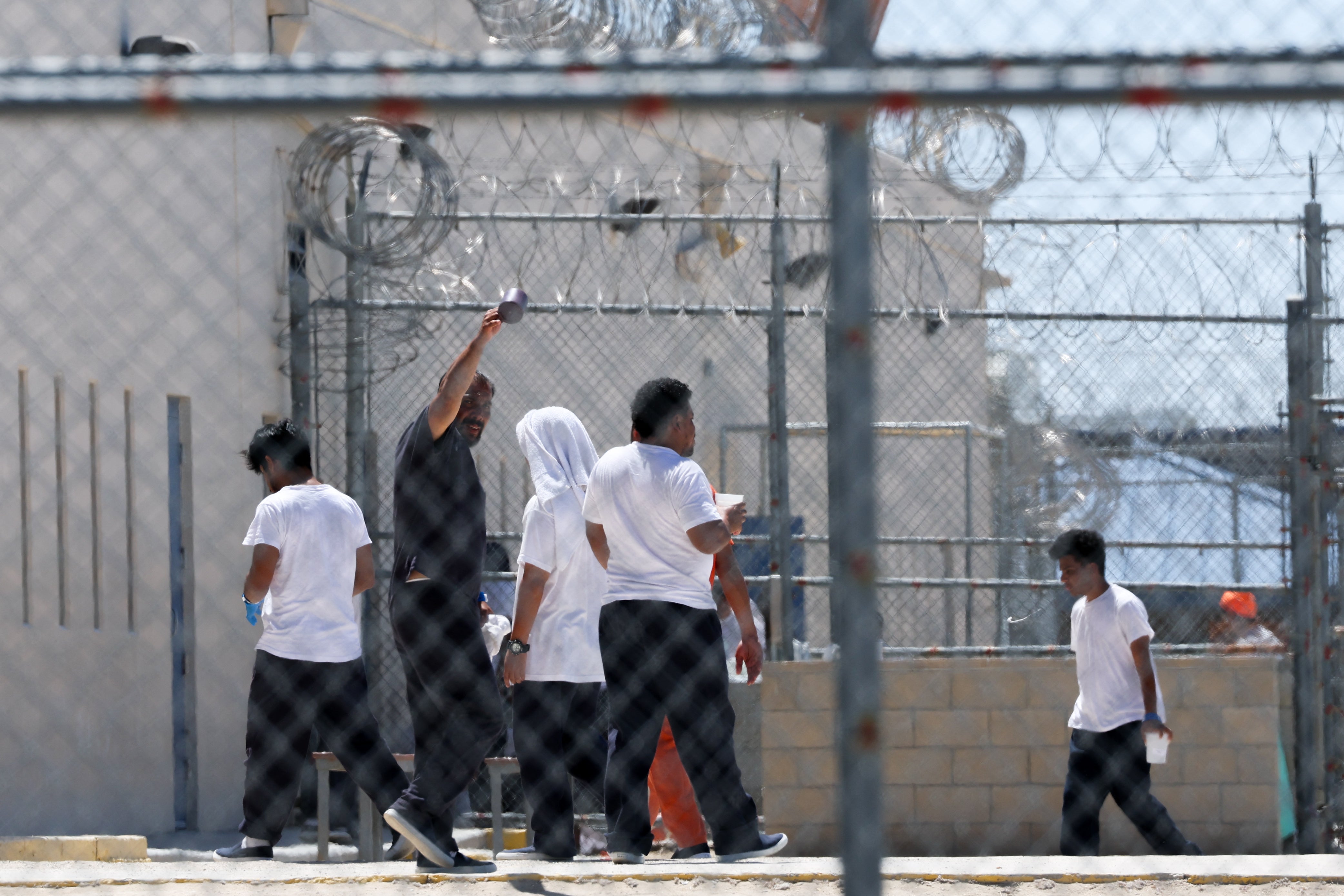ICE is scrambling to hire doctors, nurses, pharmacists, and other healthcare workers after a surge in detainee deaths and lawsuits over medical neglect.
Online job listings showed at least 45 open positions within the agency’s Health Service Corps as of Monday, ranging from dental hygienists through psychiatric nurse practitioners to medical risk managers and data scientists.
“Provides direct patient care during ICE removal missions and DHS operations, including emergency response and medical oversight in austere environments,” said one advert for a physician to travel between multiple detention facilities.
“Delivers psychiatric care to ICE detainees, including evaluations, treatment plans, medication management, and crisis intervention,” said another for a psychiatric provider.
The recruiting drive, first reported by Politico, comes after a spate of lawsuits alleging that ICE has failed to provide proper medical care to the people it detains, with officials warehousing prisoners in rapidly built temporary detention centers as they race to fulfill Donald Trump’s mass deportation drive.
Last week, Washington representative Pramila Jayapal, the ranking Democrat on the House subcommittee that monitors ICE, said that 20 people have died in its custody since Trump took office. That’s nearly as many as in the entire Biden presidency — although still lower as a percentage of the total number of people detained.

Experts say the massive increase in detentions under Trump has increased the risk of unsafe conditions at ICE detention centers, which have already faced allegations, including sexual abuse, medical neglect, and even forced sterilization, dating back long before 2025.
“Compared to the population that is traditionally seen in the immigration system, the level of trauma and psychological distress of those caught up in this new abduction machine will be much greater,” Jonathan White, a former U.S. Public Health Service Corps commander who worked with detainees during Trump’s first term and is now running for Congress as a Democrat, told Politico.
“These people are proportionally much more likely to have the most severe psychological reaction to being removed, because they have many years in this country, roots in their communities, and U.S. national children who they’re being separated from.
ICE did not immediately respond to a request for comment. But Assistant Homeland Security Secretary Tricia McLaughlin has previously denied accusations of medical neglect.
“Any claim there are ‘inhumane’ conditions at ICE detention centers are false,” she said last month. “All detainees are provided with proper meals, medical treatment, and have opportunities to communicate with lawyers and their family members.
“It is a longstanding practice to provide comprehensive medical care from the moment an alien enters ICE custody. This is the best healthcare that many aliens have received in their entire lives.”

Nearly 60,000 people were being detained by ICE or its sister agency CBP as of September 21, according to the detention tracking service TRAC. That same month, Trump’s border czar Tom Homan told reporters the system was “almost at capacity”.
Many of those people have been held at impromptu detention complexes such as Texas’s Fort Bliss or Florida’s notorious ‘Alligator Alcatraz’, both of which have been accused of inhumane conditions.
At the latter, detainees are kept packed together in metal cages inside gigantic heavy-duty tents in the midst of the sweltering Everglades swamp. Detainees and their families have reported worm-infested food, routine medical neglect, unreliable air conditioning, and inadequate toilets that overflow and cover the floor with feces.
Detention centers in multiple states have sometimes refused to allow unannounced inspections by members of Congress and their staffers, which Democrats contend is illegal under federal law.
In some cases, legislators or local officials have even been arrested while trying to inspect detention centers or monitor immigration courts.
Last month, Trump also laid off hundreds of federal workers responsible for overseeing detention conditions. “More people are going to die in custody as a result, because there are not going to be the same level of checks and balances internally,” one former worker told NPR.



